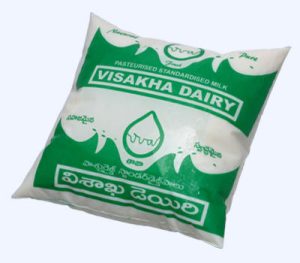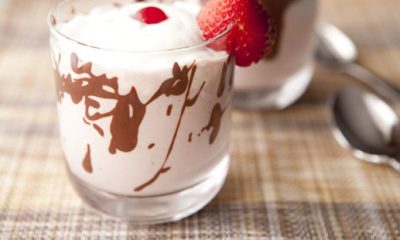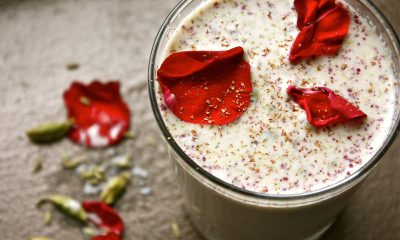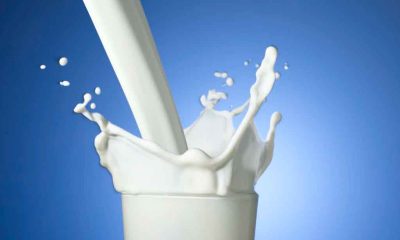Ask
All About Milk
Is it better to drink milk at night or in the morning?
Milk drinking is a routine many of us get used to from childhood, and many carry well into adulthood. But have we been drinking milk all wrong? Milk may be better saved as an end of day drink to help you wind down and crank up the sleep-inducing serotonin and melatonin levels in your body.
Milk is a calcium-rich drink that’s loaded with nutrients like protein, calcium, magnesium, potassium, phosphorus, Vitamin B2, and Vitamin B12, as well as Vitamin D if it is fortified milk. This makes it an excellent addition to your diet. But is there a good time or a bad time to drink milk? As it turns out, there may well be. Here’s how to make the most of that cup of milk by drinking to give your body what it needs, when it needs it.

Starting your day off with a bowl of cereal with milk poured over, or chugging down a milk-based drink might seem like a quick and nutritious start to your day, but it can get a little heavy if you’re not careful. Using whole fat milk can make the first meal of the day heavier than you want it to be. And it may not keep you as full as a breakfast that has a little more fiber in it (like oatmeal) to bulk it up or a richer protein source like eggs which keep you satiated longer.
In fact, Ayurveda suggests avoiding an overload of your digestive system in the morning. The body needs fuel that will help fire it up for the day. Heavy milk can bring on stomach aches or heartburn as well, due to the load on your digestive system. This is a time of day to have warm poached fruit or cooked vegetables, or incorporate a little milk into an oatmeal porridge (or have a nut milk instead!) to help ease your body into the day ahead and tank up on foods that release energy slowly (low glycaemic foods like whole grains and fruit and vegetables can do this for you).
Why night time milk drinking is a good idea
Milk is best drunk at night when your body needs to wind down and switch from being active to calmer and more relaxed. Tryptophan is an amino acid that milk contains which helps improve the quality of sleep you get, as well as how long you sleep. It helps the body with creating serotonin and melatonin, two neurotransmitters that help the body manage its sleeping and waking cycle. You could have your cup of warm milk about half an hour before you turn in for the night.
The magnesium in milk is another reason to consider switching milk-drinking to the evening or night. The nutrient plays a key role in a whopping 300 biochemical reactions in the body, including those that help you maintain normal nerve and muscle function. And it’s these latter two that are critical in the context of sleep and nighttime rest. By keeping the body plied with this nutrient you might be able to stave off restless leg syndrome and muscular cramping caused by magnesium deficiency, to get a proper night’s rest.
The calcium in milk also helps boost serotonin levels in the body, while the melatonin helps fight off insomnia in those struggling with this sleep disorder due to stress or other reasons.
Make it part of your bedtime routine and you’ll help your body create a nice turndown process every day. And such routine is great for your body to establish a good rhythm, and maintain a balance of energies.
As the body rests at night, it also recovers and heals from the day’s wear and tear. If you mix some turmeric into your milk, you can amp up the power of the drink due to the anti-inflammatory, antibacterial, and healing powers of the spice.
So you’ll be able to go to sleep knowing the drink has helped ease inflammation, pain, and swelling, making it possible for someone with inflammatory diseases like rheumatoid arthritis or chronic pain, to actually be able to relax a little and get some rest.
Does poly packed milk have to be boiled before use?
It is a general tendency to boil both raw and packaged milk, however, it is imperative to understand that only raw milk needs boiling to remove any possible bacteria and packaged milk may not need boiling as it is already pasteurized. The process of pasteurization (boiling in simple terms) is to remove any pathogens, which are disease-causing microorganisms.
Considering the temperature milk is being pasteurized at, it may fail to destroy all the microorganisms that are present and may become difficult to digest. Boiling milk sterilizes it without necessarily destroying its nutritional advantages. Fresh raw milk, which has been brought to a boil, also has a taste often found more appealing than just ordinary pasteurized, homogeneous packaged milk.
Therefore, you can easily boil packaged milk before drinking without worrying about losing its nutrient value and store it for a longer period in a cool place. While raw milk from the dairy farms must be boiled to remove bacteria, it is okay if you do not boil the packaged milk as it is already gone through the process of pasteuriZation; unless you want it served hot and steamy.





















